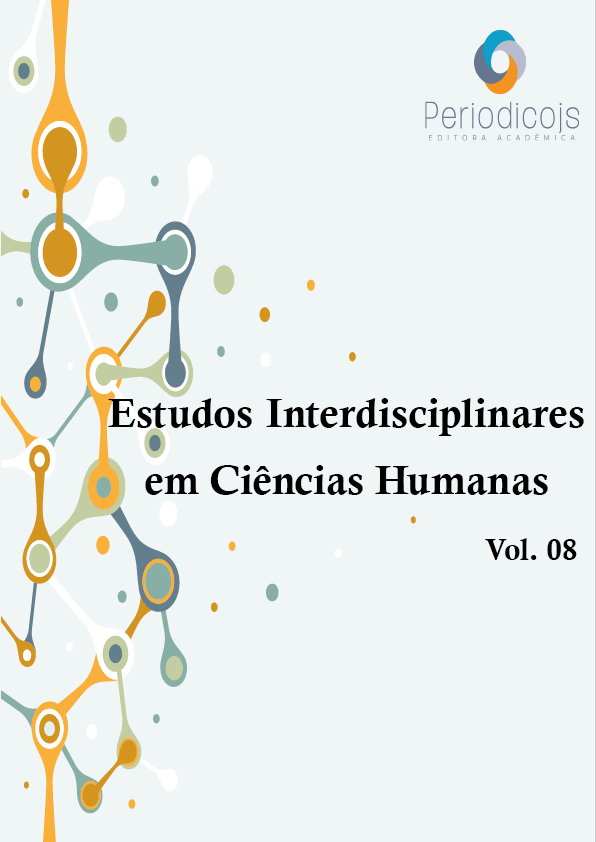Abstract
The article aims to present a brief review of the literature and some regulations on the subject, which will contribute as subsidies for a future analysis of the perception of teachers of a municipal public school in Aragarças-GO, regarding the inclusion of students with disabilities and autism spectrum disorders, in regular teaching classes. To this end, a brief history of special education in Brazil was carried out, concisely highlighting the political-legal perspective of this teaching modality, in order to understand how legal provisions and Brazilian public policies structure the educational inclusion movement. As for the methodological procedures, this article consists of a bibliographic review that, according to Gil’s conception (2002) “is developed based on material already elaborated, consisting mainly of books and scientific articles”. To do so, we sought foundations for the announced problem from authors such as: Carvalho (2012), Mantoan (2004, 2006), Reis (2006, 2013), Reis et al (2017), Sisson (2009), among others. The results show a solid basic structure supporting Special Education from an inclusive perspective in Brazil, structured with documents and legal devices that refute social practices of exclusion and guarantee the right of all to attend regular teaching environments. However, these documents guarantee the permanence of people in the classrooms, but do not guarantee inclusion. This movement (inclusion) must emanate from the inclusive practices of the people who structure the school’s human resources.
References
BRASIL. Lei no 9.394, de 20 de dezembro de 1996. Lei de Diretrizes e Bases da Educação, 1996. Disponível em: http://www.planalto.gov.br/ccivil_03/leis/l9394.htm.
BRASIL. Lei 8.069, de 13 de julho de 1990. Dispõe sobre o Estatuto da Criança e do Adolescente e dá outras providências. Disponível em: https://www.planalto.gov.br/ccivil_03/leis/L8069.htm. Acesso em: 22 jun. 2022.
BRASIL. MEC. Lei nº 13.146, de 6 de julho de 2015. Dispõe sobre a Lei Brasileira de Inclusão da Pessoa com Deficiência. Disponível em: http://www.planalto.gov.br/ccivil_03/_ato2015-2018/2015/lei/l13146.htm. Acesso em: 22 jun. 2022.
CARVALHO, Rosita Edler. Educação Inclusiva: reorganização do trabalho pedagógico. 6ª Edição. Mediação. Petrópolis, 2012. p.41-51.
GIL, Antônio Carlos. Como elaborar projetos de pesquisa. 4. ed. São Paulo: Editora Atlas S.A., 2002.
MANTOAN, Maria Teresa Eglér. Caminhos pedagógicos da educação inclusiva escolar. In: Caminhos pedagógicos da educação especial. GAIO, Roberta e MENEGHETTI, Rosa. G. Krob. (Orgs.) Petrópolis, RJ: Vozes, 2004.
MANTOAN, Maria Teresa Eglér. Inclusão escolar: o que é? por quê? como fazer? São Paulo: Moderna, 2006.
MORIN, Edgar. Os sete saberes necessários à educação do futuro. 2. ed. Brasília: UNESCO, 2000.
REIS, Marlene Barbosa de Freitas. Educação Inclusiva: limites e perspectivas. Goiânia: Descubra, 2006.
REIS, Marlene Barbosa de Freitas. Política Pública, Diversidade e Formação Docente: uma interface possível. 2013. 279f. Tese (Doutorado em Ciências, em Políticas Públicas, Estratégias e Desenvolvimento) – Instituto de Economia da Universidade Federal do Rio de Janeiro-RJ, 2013.
REIS, Marlene Barbosa de Freitas et al. Inclusão Escolar: Um olhar para a formação docente e o Atendimento Educacional Especializado (AEE). REVELLI, v. 9, n. 2, p. 255–269, 2017. Disponível em: https://www.revista.ueg.br/index.php/revelli/article/view/6012. Acesso em: 20 jun. 2022.
SISSON, D. A educação inclusiva e a Ética da Libertação de Paulo Freire. Revista Brasileira de Bioética, v. 5, n. 1- 4 SE- Artigos de Atualização, p. 48–62, 18 dez. 2009.
UNESCO. Declaração de Salamanca sobre princípios, políticas e práticas na área de necessidades educativas especiais. Salamanca: UNESCO, 1994.





